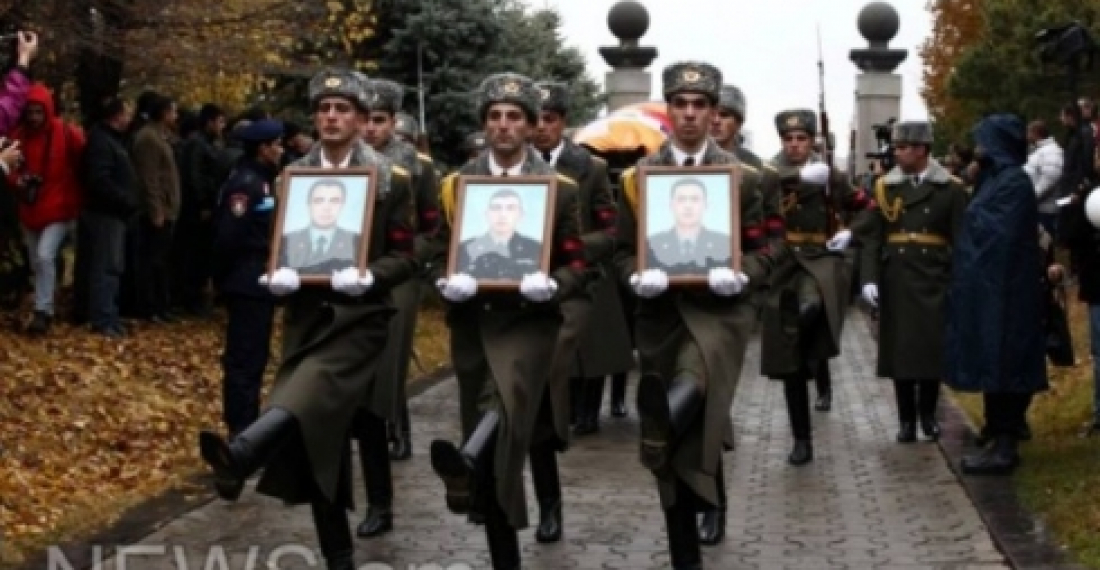Armenia has buried the three pilots who were killed when one of its military helicopter was shot down by Azerbaijan close to the line of contact separating the two sides in the Nagorno-Karabakh conflict zone.
The three killed were Major Sergey Sahakyan, as well as Senior Lieutenant Sargis Nazaryan and Lieutenant Azat Sahakyan.
The helicop[ter incident is seen as a serious escalation in the military confrontation between Armenians and Azerbaijanis that has been ongoing for many years. There is concern that the incident will start a new spiral of violence in the region.
US Co-chair of the OSCE Minsk Process, Ambassador James Warlick in a comment to the Azerbaijani News Agency APA said "The November 12 incident was a tragedy that must be avoided in the future. We urge the parties to show restraint and refocus their efforts on negotiating a peaceful and lasting settlement to the Nagorno-Karabakh conflict. Further violence and retaliation will undermine peace talks and impede the resolution of humanitarian issues that arise as a result of the conflict."
Behind the scenes there are intensive efforts going on to keep the sides focused on the peace process. The Foreign Ministers of Armenia and Azerbaijan are expected to meet in Switzerland next week on the margins of the Ministerial Meeting of the Foreign Ministers of the OSCE.
source: commonspace.eu
photo: The funeral of the three armenian pilots killed on 12 November whentheir helicopter was shot down by Azerbaijan. (picture courtesy of news.am).







